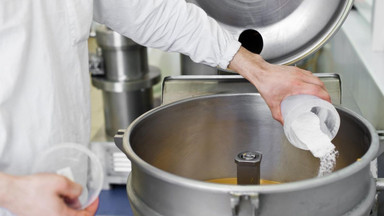Aug 26th 2020
How To Size Your Commercial Mixer
Choosing a commercial mixer involves some math. Durability, power, ease of cleaning, and movement are factors to consider, but capacity will likely guide the decision. Learn how to size your commercial mixer with these tips.
Absorption Ratio
Here’s where the math comes in: the absorption ratio of a recipe is the amount of water divided by the amount of flour. Wetter doughs with higher absorption ratios are easier to mix, while doughs with a low absorption ratio are firmer and harder to mix. If the recipes you mix most often have low absorption rates, you’ll need a mixer with more power. More powerful mixers are generally larger.
Mixers come in countertop or floor models, and some sit on worktables or coordinating mixer tables. The larger, higher capacity mixers require floor space. They may include a dolly or roll-on casters to enable you to move them to another location. Some of the largest floor mixers feature bowl lifts so you won’t need your entire kitchen staff to lift, empty, and clean the bowl.
Menu
A restaurant that serves eggs, waffles, and pancakes, or that uses a mixer primarily for sauces and smaller quantities of whipped cream or mashed potatoes will likely choose a 10-20-quart mixer. A smaller, countertop mixer might serve as a back-up for cake batters or smaller quantities of bread.
A bakery or pizzeria that mixes dough every day will need a floor model mixer that’s anywhere from 30 to 60 quarts. These machines are heavy and can stand up to 5 feet tall. The largest, 60-quart versions can handle a high volume of dense dough. If your operation needs such a high-capacity mixer, be sure you have the proper accessories, or that the mixer comes equipped with a way to move the machine and lift the bowl without injuring kitchen staff.
Planetary or Spiral Mixer
In smaller, planetary mixers, the agitator spins on its axis while moving around the bowl, like a planet orbiting a star. Larger floor mixers are usually the spiral type, where the bowl rotates as the agitator mixes in place, instead of in an orbit, to ensure a smooth and complete mixture.
Choosing the right size commercial dough mixer also involves planning for the future. The top machines are durable, so one machine can last through several restaurant expansions. Think about where your shop will be a few years from now, and whether the mixer you select can start with small batches but also handle a growing business as your operation expands.

